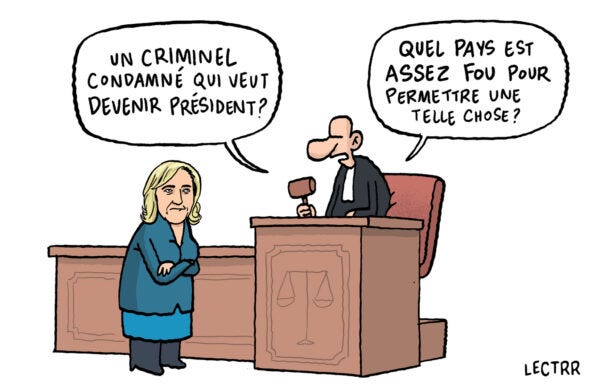Crime Monthly: April 2025 Class, Identifying Criminals, and the Media
Deportations, Media violence, Banning Politicians, and the Purpose of Punishment
Dear Readers,
It is with great pleasure that we have curated another list highlighting all kinds of wonderful articles and publications that cover ideas, topics, and events that you likely find interesting.
We have, of course, missed some other great articles. It would be amazing if you could share some articles or publications we should keep our eye on. This mostly feature all is about elevating others and sharing other people’s work.
How Wealth Helps Keep You Out of Trouble
Public Criminology is a fairly new publication. They recently published, Chamblis The Saints and the roughnecks an article that explores the adage: “the rich get richer while the poor get jail”. This post summarizes the work William J. Chambliss’ classic 1973 paper The Saints and the Roughnecks. Chambliss found the same amount of delinquent activity in two groups of young people; nevertheless, the group with low socioeconomic status got worse grades and consistency got in trouble with the law. J.D. David wrote, “What Chambliss observed is that while both groups engaged equally in delinquent activities, no one from the Saints was ever arrested for their crime, while the Roughnecks were constantly in trouble with the law and the community. Accordingly, he sought to answer a straightforward question: what causes this disparity?” Read on.
Why Punish Criminals?
This thought provoking post is an important one, so two articles from the same publication are being featured. Public Criminology published a piece on why criminals are punished. This article summarizes a series of reasons that are given “retribution, deterrence, rehabilitation, incapacitation, and denunciation”. Last September, Jason Frowley PhD covered similar themes on his post on deterrence.
Deporting Illegal Immigrants Without Due Process
The US Mass Deportation effort wrongly used tattoos to identify alleged gang members. Trump’s administration claims it is deporting terrorists, but has admitted deporting individuals by mistake. Chris Dalby writes “The use of tattoos as a proxy for criminality in US law enforcement doesn’t work. What may have begun decades ago as one element of gang identification has morphed into something wholly indiscriminate.” These efforts, like we previously suggested, find newer foes for very old fears. Last night, President Trump insisted one such individual had MS13 tattooed on their knuckles presumably confusing a photoshopped picture for real tattoos.
In previous posts we have explored the history of the most restrictive immigration act in America’s history, and written about current issues relating to immigrants in the United States and in Europe. I do think illegal immigrants have broken the law, but I also think that the rule of law matters even if these individuals have previously broken the law.
Violent Media Begets Violent People?
Jason Frowley PhD discusses the effects of media violence. “about one thousand fewer assaults on weekends when violent movies were released. One thousand. That, as we scientists like to say, is a shitload. ‘Between the hours of 6.00 pm and midnight, for every million people watching a strongly violent movie, the number of violent crimes decreased by 1.3%.’ he adds “Let’s sum it up in one sentence: Violent movies keep young, testosterone-addled young men off the streets and out of the bars to the tune of one thousand assaults a year.”
The claim linking violent behavior to violent acts is one that resurfaces with some periodicity.
Should We All Be Equal Before the Law?
The French court’s decision to ban Marie le Pen from participating in French elections has been widely covered in the press. There has been a lot of criticism including by the Economist who expressed anxiety that this decision may fuel the far right whilst undermining democracy.
Tarik Abou-Chadi, an Oxford Professor, published an article defending the Court’s decision in the very same issue of the Economist. He argued, that this decision reaffirms democratic institutions because courts are supposed to apply the law, not wonder about political consequences.
Abou-Chadi makes a cogent argument about why the rule of law is more important than short-term political consequences whatever they may be. Can this decision be exploited? Surely. If she is guilty, then she should be held accountable. Otherwise one may be breaking the very system one is trying to protect.
Thousands Released and Not Much Happens
The Economist: The UK released thousands of criminals in a short period of time and while some committed crimes, the crime wave many predicted failed to materialize. In short, “More than 3,000 prisoners were let out over two days—almost as many as is typical in a month”. Currently, about forty percent of those released are re-incarcerated within a year. These prisons are doing an abysmal job in rehabilitating individuals and likely in identifying who should be released. The problem is exacerbated because these individuals have neither work nor housing lined up after release. The Economist calls for policies that help these individuals secure housing and work because these having these drastically diminishes the likelihood of reoffending.
This month’s selection covers a wide range of topics and themes. We have three articles that focus on contemporary issues: immigration (United States); Le Pe (France); and the effect of violence in the media. Another selection highlighted the importance of academic research, and the other invites readers to think about why wrongdoing is punished.
Writing these Crime Monthly posts has been really enjoyable and hope it is driving some traffic to the articles featured.
Curing Crime has recently introduced a paid tier subscription. You can shape what the perks are. What would you like to see more of? What can CuringCrime offer that would sway you to become a paid subscriber?








